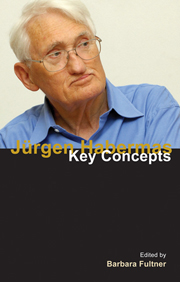Introduction
Summary
Jürgen Habermas is without a doubt the most important German philosopher living today and one of the most important social theorists in the world. Heir to the founders of the Frankfurt School, Max Horkheimer and Theodor Adorno, his is one of the first names that come to mind at the mention of critical theory. His influence, like theirs, extends across the social sciences and humanities. Moreover, he has lived the life of a public intellectual par excellence, contributing on a regular basis to the editorial pages of major newspapers and engaging in public dialogue with other major figures ranging from Jacques Derrida, Michel Foucault and Richard Rorty to then Cardinal Ratzinger, now Pope Benedict XVI. He is a deeply systematic thinker and a consummate synthesizer, bringing together concepts from sociology, Marxist theory and continental as well as analytic philosophy: a fact that makes his work often challenging to read.
Habermas was born in 1929 in Düsseldorf and grew up in the small town of Gummersbach, where his father, Ernst Habermas, was director of the Bureau of Trade and Industry. After the Second World War, he studied in Göttingen, Zürich and Bonn. Horrified at the atrocities of the Nazis and at having been deceived about them, Habermas was appalled to realize that many academics, most notoriously Martin Heidegger, were silently complicit with if not actively supportive of the regime. He became a prominent critical voice of his generation, active in the anti-nuclear movement in the 1950s and in the student protests of the 1960s.
- Type
- Chapter
- Information
- Jürgen HabermasKey Concepts, pp. 1 - 12Publisher: Acumen PublishingPrint publication year: 2011

